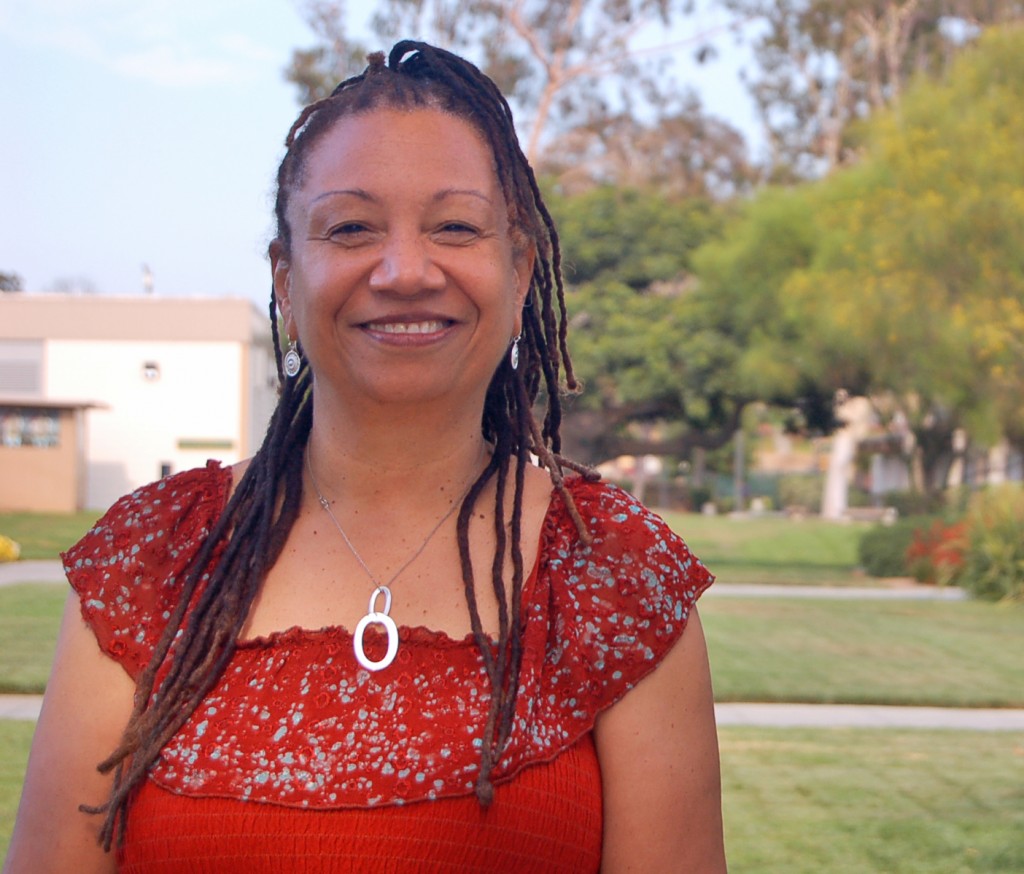 Elizabeth Jackson, an adjunct professor in negotiation, conflict resolution and peacebuilding (NCRP) at California State University, Dominguez Hills, has been a guest lecturer in 17 countries, with her latest assignment taking her to Russia.
Elizabeth Jackson, an adjunct professor in negotiation, conflict resolution and peacebuilding (NCRP) at California State University, Dominguez Hills, has been a guest lecturer in 17 countries, with her latest assignment taking her to Russia.
Through the Fulbright Specialist Program, Jackson spent a 30-day residency this past April at Ural Federal University (UFU) in Ekaterinburg, Russia, where she presented lectures to 26 graduate students studying communications on objectivity in international journalism from the perspective of psychological biases.
“[The students] were absolutely mesmerized. They had never had this kind of offering before, because it was a cross-cultural discipline,” Jackson said. “I called it mashing disciplines. We’re taking them … out of journalism and placing them in psychology.”
Her exchange in Russia extended beyond the classroom. Among her activities, she collaborated on a “Books for Russia” library project, implemented an English friendship exchange page between a Russian high school journalist and students at a high school in Lynwood, Calif., assisted Russian students with a Martin Luther King, Jr.-based “I Have a Dream” contest, and presented at an international information systems conference, where, with the aid of an interpreter, she discussed international media entities in the United States and their reconfiguration of news gathering and reporting strategies in the face of the economic downturn in America.
Jackson also experienced the flip side of journalism–as subject. Several Russian newspapers interviewed and featured her in articles, including the Russian government daily paper, Rossiyskaya Gazeta.
“I was always analyzing conflict and peacebuilding with every word,” she said of her interviews with Russian reporters. “I wanted to represent [the U.S.] correctly without seeming like I was a propaganda organ for America at the same time.”
Jackson, who considers herself a generalist theoretician, drew on her broad education and teaching experience to create meaningful presentations during her stay at UFU.
She holds a post-graduate certificate in NCRP from CSU Dominguez Hills, a Ph.D. and a master’s in communications from Northwestern University in Illinois, as well as a master’s in clinical psychology from Fisk University in Tennessee and a bachelor’s in psychology from the University of California, Los Angeles. She serves as professor of communications at CSU Bakersfield, where she began teaching in 1989.
Moreover, it may have been her NCRP-influenced approach to international exchange that led her to the Fulbright opportunity in Russia as well as other countries.
“I’ve always had a philosophy that I hold my expectations in abeyance…. My idea is wait until I have feet on the ground to see what’s really going on. That philosophy has never let me down,” she said.
Since 1996, the Carson native has served as a senior Fulbright Scholar in nine-month stints teaching media and society studies in Gweru, Zimbabwe; at the International Foundation for Education and Self-Help agency in Addis Ababa, Ethiopia–where she was recognized with an International Educator of the Year award; and in Malawi for two years.
Jackson also served as a visiting professor in 2004 for the University of Pittsburgh’s Semester at Sea program visiting ports in Cuba, Brazil, India, China, Vietnam, South Korea, South Africa, Tanzania, and Japan; and for the University of Virginia’s Semester at Sea in 2012 she visited Panama, Ecuador, Peru, Costa Rica, and with a culminating anti-bullism peacebuilding project in Belize.
Through her teaching appointments abroad, Jackson has met with such world leaders as former Cuban president Fidel Castro, former South African president Nelson Mandela, and President of Zimbabwe Robert Mugabe.
Despite often contentious political climates, Jackson said that wherever she travels, she is able to transcend international relationships and finds that it’s the “human connection” that becomes central during her interactions.
“People just want to know who you are … how you live. And they want to tell you who they are. They are always willing to share,” she stressed. “There is always a mutually beneficial cultural takeaway. … People have a [better] understanding of one another. We’re able to bridge cultural gaps, academic gaps, and intellectual gaps.”
Jackson encourages other faculty members to teach abroad and students to study abroad.
“You just have a window to the world,” she said.
An occasional documentary maker, Jackson was the winner of the Best Documentary category in the Hollywood Black Film Festival 2000 competition for her self-reflective work: “Surviving Abyssinia” (video, 2000). The documentary was shot underground during Ethiopia’s Eritrea outbreak and documents her experiences as an African-American woman volunteering in the third poorest country in the world. She is currently working on a documentary and a book about her residence as Fulbright scholar to Mugabe’s problem-laden Zimbabwe.